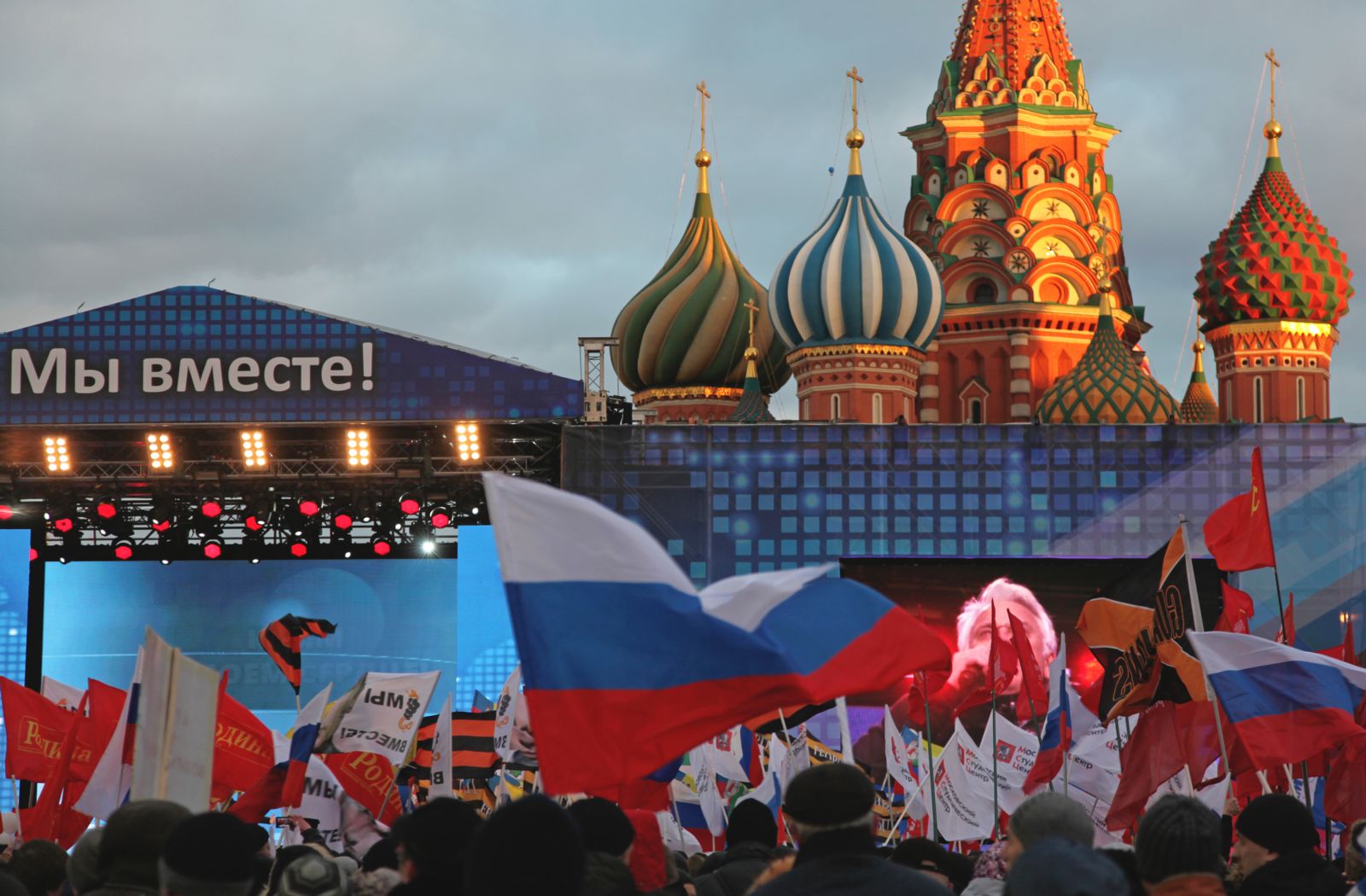On November 9, 2022, amid Russia’s ongoing war against Ukraine, Russian President Vladimir Putin announced a national security strategy centered on traditional spiritual and moral values. Putin’s decree gives insight into a nationalist, autocratic strategy to undermine human rights while claiming to enshrine them.
Setting Rights and Values against Each Other
According to the 2022 decree, a Russian society unified by a single value system, supported by laws, religious actors, and state security agents, should prove strong and victorious against the threat of foreign influences. These values were being threatened by “the activities of extremist and terrorist organizations, certain mass media and mass communications, the actions of the United States of America and other unfriendly foreign states, a number of transnational corporations and foreign nonprofit organizations.”
But what are exactly the traditional values that Russia claims to defend against Western countries and international organizations? The document offers a list: “life, dignity, human rights and freedoms, patriotism, citizenship, service to the Fatherland and responsibility for its fate, high moral ideals, a strong family, creative work, prioritizing the spiritual over materialism, humanitarianism, mercy, justice, collectivism, mutual assistance and mutual respect, historical memory and continuity of generations, unity of the peoples of Russia.” This list may resonate with many audiences of a conservative or religious persuasion even outside of Russia. Who would want to oppose mercy, justice, or respect? Who would want to oppose human rights?
The giveaway is that traditional values are said to include human rights. Any aims that supposedly contradict these traditional values, then, can be denied the status of legitimate human rights claims. The document is quite explicit about which individual human rights claims are ruled out: the right to conscientious objection to military service (described in the document as “denial of the ideals of patriotism and service to the Fatherland”), reproductive rights like access to safe abortion (“denial of … natural continuation of life”), some aspects of women’s and children’s rights (“denial of … values of a strong family, marriage, large families”), freedom of artistic expression (referred to with the nebulous phrase “denial of … creative work”) and LGBTQI+ rights (“destruction of the traditional family through the propaganda of nontraditional sexual relations”).
In short, a hierarchy of human rights claims emerges, separating admissible from nonadmissible human rights and prioritizing collective claims and rights over individual ones.
The Role of the Russian State and Church
The reasons for the Russian rights appropriation are at least twofold: firstly, the existing autocratic power structures in Russia benefit from the denigration of the language, concepts, and institutions of human rights. Secondly, by challenging the international human rights instruments as Western-centric and biased, and mobilizing an alternative, conservative human rights discourse internationally, Russia secures its own status as an antagonist against Western liberal democracies and as the potential leader of an illiberal majority in global politics.
In the last two decades, Russian state actors and the Russian Orthodox Church have come to play an increasingly important role in undermining established understandings of international human rights law. The International Journal of Constitutional Law’s recent symposium “The (Mis)appropriation of Human Rights by the New Global Right” analyzed several cases of rights appropriation across the world, including in Brazil, Turkey, India, the US under the Trump administration, Uganda, Nigeria, and Ghana. Russian state actors and the Russian Orthodox Church are relative newcomers to the contestation of international human rights, stepping onto the scene only around 2010.
My article in the symposium looks at three case studies of Russian rights appropriation, focusing on traditional values, family, and homeschooling. In each of these cases, we find Russian actors reinterpreting and repurposing the institutions that were initially created for the advancement and protection of human rights, in particular the Universal Declaration of Human Rights. In each case, Russian state and church leaders co-opted the language of human rights in order to advance an illiberal and nationalist agenda.
This political program undercuts democratic values and targets particular groups and their rights and freedoms—most notably liberal civil society, political opposition, and the LGBTQI+ community. Under the name of traditional values, the Russian government has passed laws that criminalize the circulation of information about LGBTQI+ rights and any behavior deemed offensive to religious sensibilities. NGOs that receive funding from abroad have been required to register as “foreign agents”; many have been shut down by the authorities.
Transnational Influences, International Responsibilities
The great irony of the Russian conservative right’s agenda is that it owes a good deal of content and strategy to Western influences. Russia’s assertion of traditional values is often believed to originate exclusively in a historical belief in Russia’s “special path,” the Russian Orthodox faith, or an enduring national identity. But as Dmitry Uzlaner and I have recently shown in detail, the Russian traditional values agenda grew out of a learning process drawing on a transnational network of actors, and mobilizing themes and strategies primarily associated with the US culture wars and US Christian Right activism. Transnational influences have been central to Russia’s embrace of conservatism.
In this context, international human rights actors and organizations have a special responsibility to address this appropriation of human rights. Activists and advocates should be aware that many of the strategies and policy tools created to support and enlarge individual rights—social movement organizing, civic activism, the accreditation of NGOs to international organizations and dialogue forums, etc.—are today being used by actors who seek to limit individual human rights in the name of national sovereignty, traditionalism, and religion. The international rights community needs to constantly enforce the boundary between legitimate democratic pluralism and the cynical use of human rights for undemocratic purposes.

